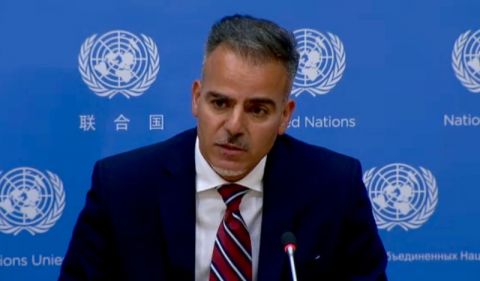
“The worst humanitarian crisis in the world” is how the United Nations characterizes life in Yemen. One of the Arab world’s poorest countries, Yemen has been embroiled in a multi-party civil war since 2014. Claims have been made that all parties to the conflict have violated and continue to violate international human rights law, international humanitarian law and other areas of international law.
To carry out a comprehensive investigation of all allegations and to monitor and report on the situation, in September 2017, the UN High Commissioner for Human Rights, Michelle Bachelet, established a commission of inquiry known as the Group of Eminent International and Regional Experts on Yemen (GEE). In the GEE’s latest report, published in September 2019, the commission detailed, among other things, numerous possible war crimes apparently committed by the parties to the conflict over the past five years. The alleged crimes took place through airstrikes, indiscriminate shelling, snipers and landmines, as well as through arbitrary killings and detention, torture, sexual and gender-based violence, and the impeding of access to humanitarian aid.
In September 2019, the Human Rights Council renewed the mandate of the Group of Eminent Experts, leading to the appointment of Professor Ardi Imseis. He joins re-appointed GEE Chairperson Kamel Jendoubi of Tunisia and Member Melissa Parke of Australia.
The humanitarian and accountability issues presented by Yemen are dire. According to the GEE’s September 2019 report, “[t]he UN Office for the Coordination of Humanitarian Affairs [has] estimated that 24.1 million people (almost 80 per cent of the population) were in need of assistance to survive.” Last March, the World Food Program declared Yemen had the “the world’s largest food crisis,” but many organizations referred to it as being “entirely man-made.” Then in June, “the UN Under-Secretary-General for Humanitarian Affairs and Emergency Relief Coordinator publicly confirmed findings of pockets of famine-like conditions in dozens of places across Yemen.”
The report also stated that the humanitarian crisis continued to have a disproportionate impact on women and children. While social and economic vulnerabilities predate the conflict, the war has contributed to the deterioration of virtually every aspect of life in the country. It also continued to have a significant impact on vulnerable groups that make up a large part of Yemen’s complex social strata, including social minorities, persons with disabilities, the elderly and religious minorities.
“The destruction and damage the conflict has caused to Yemen’s infrastructure and access to such basic services as medical care, education and justice – all of which were already limited before the war – have significantly affected the resilience of vulnerable communities,” says the GEE. “Large waves of displacement have also pushed many to seek new coping mechanisms, exacerbating their vulnerabilities and increasing exposure to human rights violations.”
It was the GEE’s 2018 report that first found reasonable grounds to believe that airstrikes, shelling and other means by which the warring parties conducted hostilities have had an extreme impact on civilians and may amount to serious violations of international humanitarian law. More specific findings were noted in the 2019 report.
“It is my hope that I can help shed light on the plight and tragic situation enveloping all of the people of Yemen as a result of the ongoing armed conflict,” says Imseis. “In the face of this protracted war, documenting violations of human rights and humanitarian law with a view to ensuring accountability for victims is a moral imperative of the highest order.”
Professor Imseis and his colleagues on the Group of Eminent Experts will present the next report to the Human Rights Council in September.